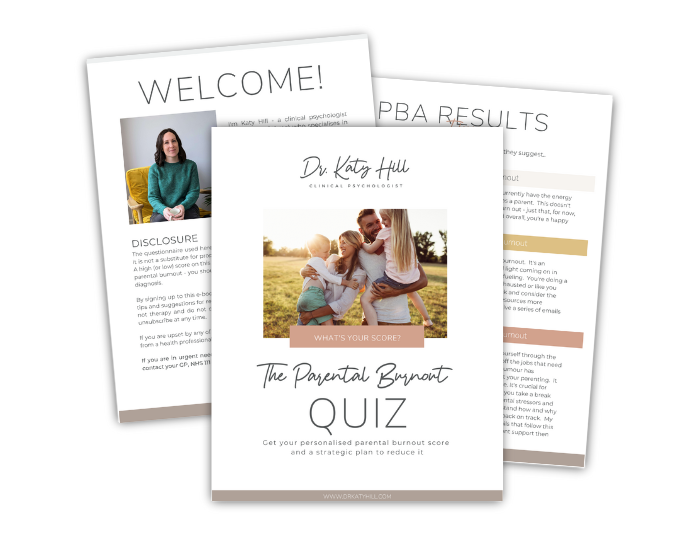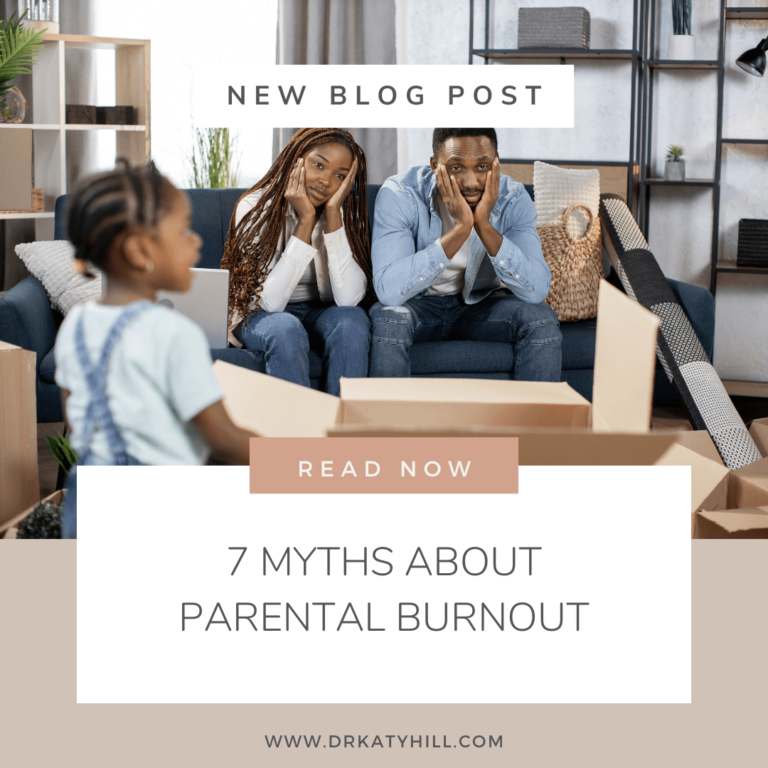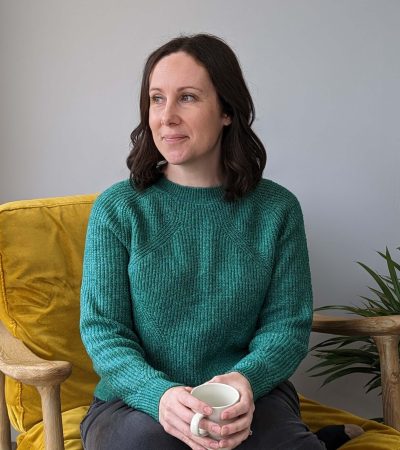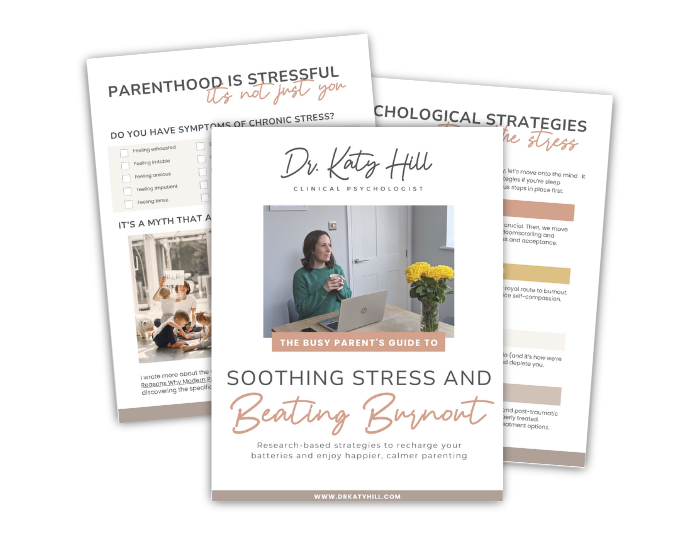Although the concept of parental burnout has been around since the early 1980s, there wasn’t much research available until 2017 onwards thanks to the efforts of Profs Isabelle Roskam and Moira Mikolajczak (their website is a treasure trove of information about parental burnout). Their work has allowed us to dispel many myths about parental burnout.
I think you’ll be surprised by the truth behind some of these myths, let me know in the comments which one surprised you the most.
myth #1 - It only affects mothers
One of the most prevalent myths about parental burnout is that it only happens to mothers. While mothers are more at risk of developing parental burnout (because they tend to have the most contact with children and carry the majority of the mental load of parenting), fathers can and do get burned out.
Interestingly, studies show that fathers are actually more vulnerable to developing parental burnout than mothers. Whereas women need to have an imbalance between their parental stressors and resources to fall into burnout (see this blog), it that appears men can burn out even when they do have the resources to compensate for their parental stress.
Parental burnout also looks different in fathers – they tend to withdraw more from parenting than mothers do.
There’s a whole bunch of stuff to unpick here about gender and parental burnout and I’ll do so in a future blog.
MYTH #2 - IT ONLY AFFECTS PARENTS WITH YOUNG CHILDREN
Parenting young children can be very stressful with all the extra physical care and supervision they need due to their immaturity. Parents of young children are often managing stressors like tantrums, picky eating, sleeping difficulties and picking up after little ones. Little ones want your attention much more than older kids do and they also need closer supervision to be kept safe. At best that can be boring; and at worst, exhausting for a parent who also has to work, run a household and find time for their own hobbies, friendships, partner etc.
Although older children don’t need such hands on care; their level of maturity also brings with it a fair share of parental stressors that aren’t present in the younger years. Parents of teens report less physical exhaustion but more emotional exhaustion dealing with problems like mood swings, risk-taking, dating, peer conflict, educational or occupational difficulties. Teens still need you just as much but now their bodies and brains are wired up for independence, listening to their peers more, risk-taking etc so they can swing between needing you and pushing you away.
Parental burnout can occur in parents of young adults too – you don’t stop being a parent when your child leaves home. Some parents don’t get an ’empty nest’ – either because the cost of living means many more young adults remain living at home for longer these days or because their children haven’t been able to gain independence due to ill health, disability or mental health difficulties.

The Parental Burnout Quiz
Curious what your own parental burnout score is? Download the free assessment and get your score – plus expert tips on how to reduce it.
Myth #3 - IT ONLY AFFECTS PARENTS of 'DIFFicult children'
Parents are often perplexed about why they’re finding parenthood so taxing when they have healthy, typically developing, well-behaved children – it can be a significant source of guilt for some. But, while it’s true that difficult behaviour in children is a significant source of stress for parents, it’s not enough on its own to cause burnout.
Remember, no single risk factor alone is sufficient to cause burnout – it’s a matter of balance (see this blog) .
Often the risk factors that have led to parental burnout are more to do with characteristics of the parent (such as perfectionism, difficulties with organisation, stress management or trouble asking for help from others etc) than of the children. And this is great news, since these are factors that are more likely to be within the parent’s control and things that they can seek help from a coach or therapist with.
MYTH #4 - IT's AN INVENTION OF THE 21st century
Undoubtedly, we benefit from many of the creature comforts of the 21st century but parents have always suffered from overwork or exhaustion – I often wonder how we managed babies and toddlers back in the day when there were no disposable nappies or washing machines, no Peppa Pig or Bluey.
Parental burnout has always existed but the term has only been around for 40 years and only seriously researched in the last six years.
I don’t think that parental burnout is a modern phenomenon. I think researching the concept is new and that terms are disseminated faster and wider these days due to the internet. There’s also a lot less stigma around discussing mental health topics.
There are, however, a number of huge societal changes that have happened in modern times that may be contributing to an increase in parental burnout rates (see my previous blog here).
Myth #5 - it only affects single parents
Nope. Plenty of married parents burn out (and you’re more likely to burn out if your partner is burned out too by the way). Just because you have a partner, doesn’t mean that they share the parenting load with you or that the accumulation of parental stressors can’t overwhelm a supportive co-parenting pair.
As we discovered with myth #3 about ‘difficult children’, one risk factor alone can’t be responsible for parental burnout. So, whilst single parenthood is a risk factor for parental burnout, it’s not going to lead straight to burnout if there are plenty of resources to balance it out e.g. the parent has a good network of friends, plenty of childcare, hobbies that they engage in, adequate financial resources, good health and great stress and management and organisation skills etc.
Single parenthood tends to be more stressful, in general, because it often comes with other risk factors such as lack of downtime, less financial security, increased mental load and responsibility, decreased access to the buffering effects of marital support and satisfaction etc.
Myth #6 - it's more common in disadvantaged parents
Mental ill health is correlated with social and economic disadvantage which makes complete sense. If you’re not able to afford a certain standard of living or you’re marginalised for any reason that’s going to take a toll on your mental health.
However, with parental burnout, we often see the reverse effect: it tends to happen to the more educated, more affluent parents.
We need more research to tease out why this might be the case. It could be something to do with educated parents being more attentive to the many messages out there about positive parenting and being aware of all the different ways we’re expected to be attentive, calm and skilled parents these days.
It could be something to do with these parents being more likely to be the type of high-striving, perfectionistic people who put a lot of pressure on themselves to be ‘perfect’ parents and attempt to perfect their children’s lives with the healthiest diets, the best schools, numerous extracurricular activities etc.
I also wonder whether more educated, affluent families tend to be the ones who move further away from their families of origin for work and so have much less family support than parents in more disadvantaged neighbourhoods who don’t tend to move so far from their families of origin?
Myth #7 - it's more common in parents who work long hours
This is another one of the counterintuitive myths about parental burnout too. You might expect that parents working long hours and trying to juggle their work/life balance would be the most likely to burn out. But, we actually see higher rates of parental burnout in parents who work part-time or don’t have any paid employment. Personally, as a former stay-at-home mum, this is one of the myths about parental burnout that I never believed! It doesn’t surprise me at all that parents who spent more of their waking hours, proportionally, engaged in childcare tasks, are more stressed out.
Part-time working or unemployed parents spend more time with their children and often take on more of the parental responsibilities. This exposes them much more to the stressors inherent in caring for children and reduces their exposure to the rewards of work such as accomplishment, adult company, money etc. How many times have you heard a working parent say that they go to work for a break?!
What often happens for parents (often mothers) who reduce their working hours or pause employment entirely is that they can reinvest the effort that they put into their careers into childrearing. Some parents with high expectations of how fulfilling being a stay at home parent would be can be bitterly disappointed by the reality of being a full time carer. This can often come with a great sense of shame and guilt for not enjoying it so much or not being grateful enough. They’re also often the parents who feel that they shouldn’t be so exhausted and shouldn’t complain when ‘this is all I have to do’.
there is no one type of burned out parent
I hope you’ve found this blog on the myths about parental burnout helpful. Especially if you’re one of the many exhausted parents who are wondering if they have the ‘right’ to be this tired because they don’t fit the stereotype of what they think a burned out parent looks like.
You can absolutely burn out if you only have one child, or only ‘easy’ children or if you’re a father or a married stay at home mother with no money worries etc.
Remember, it’s the balance of stressors and resources that leads to parental burnout and so it could happen to any one of us given the right circumstances (see my blog here for more).
Parental burnout is really hard but it’s treatable. If you’d like to discuss therapy with me then do get in touch (here), I’d love to hear from you.








